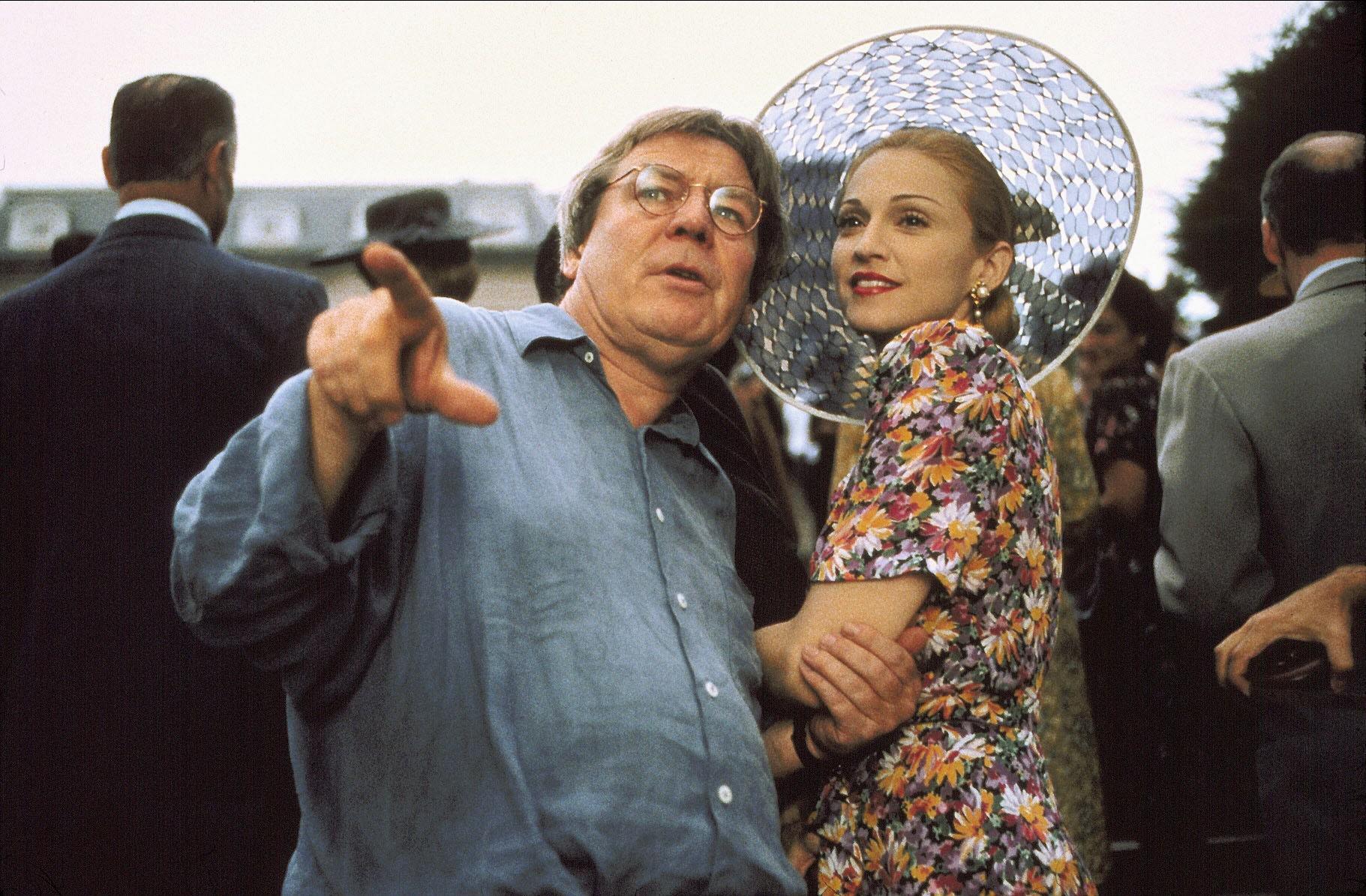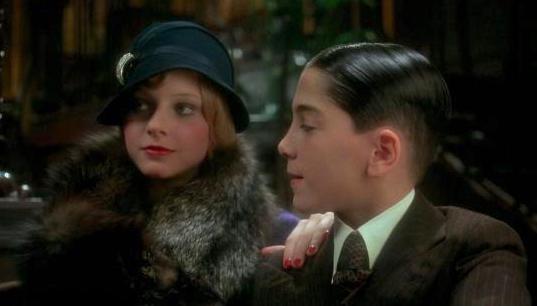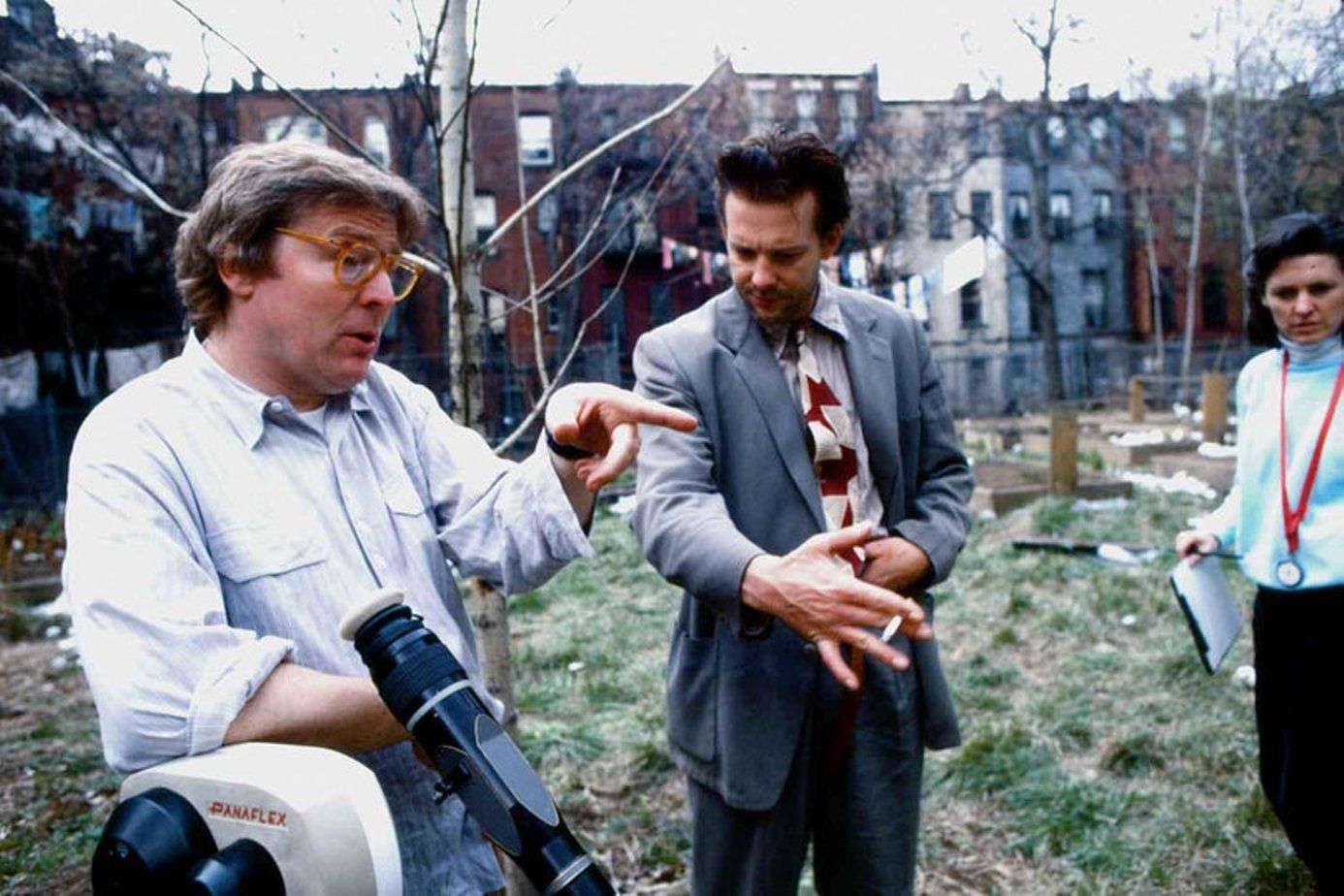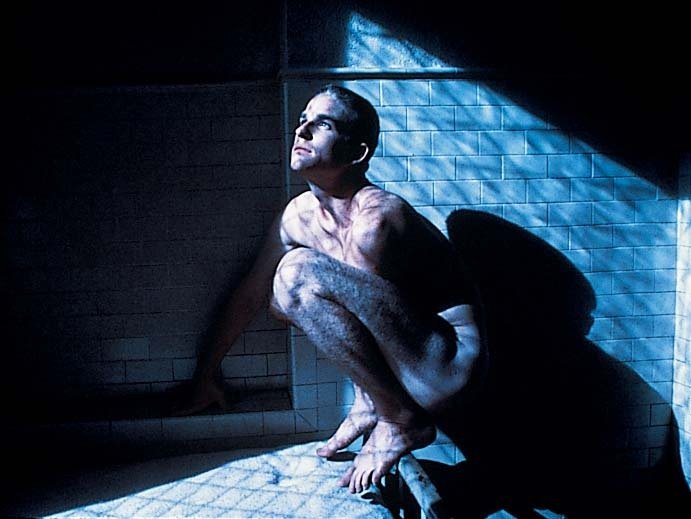by Nathaniel R
 Alan Parker and Madonna on the set of "Evita"
Alan Parker and Madonna on the set of "Evita"
We were remiss Friday in sharing the news that we've lost another fine talent. The director Alan Parker who brought us gangster comedies, oddball indies, multiple musicals, and prestige literary adaptations has died at 76 years of age of an undisclosed lengthy illness. His 14 films netted a combined 27 Oscar nominations and 6 wins, and he himself received two Best Director nominations (1978's Midnight Express and 1988's Mississippi Burning).
Parker burst onto the scene as a scrappy young British director with 1976's playful gangster musical spoof Bugsy Malone and its all kid cast (Scott Baio and Jodie Foster headlined)...
 Jodie Foster in her breakout year and Scott Baio in Bugsy Malone (1976)
Jodie Foster in her breakout year and Scott Baio in Bugsy Malone (1976)
Though comedy and gangsters wouldn't be regular features of his work, his irreverent sense of humor and musical inclinations would be. With only his second film, Midnight Express he became a big Oscar deal and would regularly chase golden statues thereafter whether by intent (prestige adaptations) or quality -- 1980's Fame, for example, probably didn't have awards hopes in its inception but it hit the zeitgeist, became a huge hit, got a spin-off TV series and won two Oscars. Three more musicals followed Bugys Malone and Fame into theaters despite the genre's scarcity at the time: Pink Floyd the Wall (1982), The Commitments (1991) and Evita (1996, containing Madonna's best performance) and all but The Wall were nominated for Best Picture at the Golden Globes.
 Parker on the set of the controversial Angel Heart (1987) with Mickey Rourke
Parker on the set of the controversial Angel Heart (1987) with Mickey Rourke
Not that it was all success and awards.
Bugsy Malone flopped in the US despite being a hit in the UK, Angel Heart (1987) was too controversial for its time, there was a critical disaster (hello The Road to Wellville) and some of the Oscar plays fizzled (hello Angela's Ashes). Still the bulk of the filmography was good stuff. From his less celebrated pictures we're particularly fond of Birdy (1984), a peculiar but affecting drama about two Vietnam vets (Nicolas Cage and Matthew Modine), one of whom wishes to become a bird. Both of those then-rising stars did memorable work.
 Matthew Modine in "Birdy"
Matthew Modine in "Birdy"
Parker retired too early. He may have left us on an off note (2003's The Life of David Gale), but he gave so many good notes (often with musical accompaniment) along the way. Many of his best tuneful movies are worth watching and listening to all over again with newly appreciative eyes and ears.